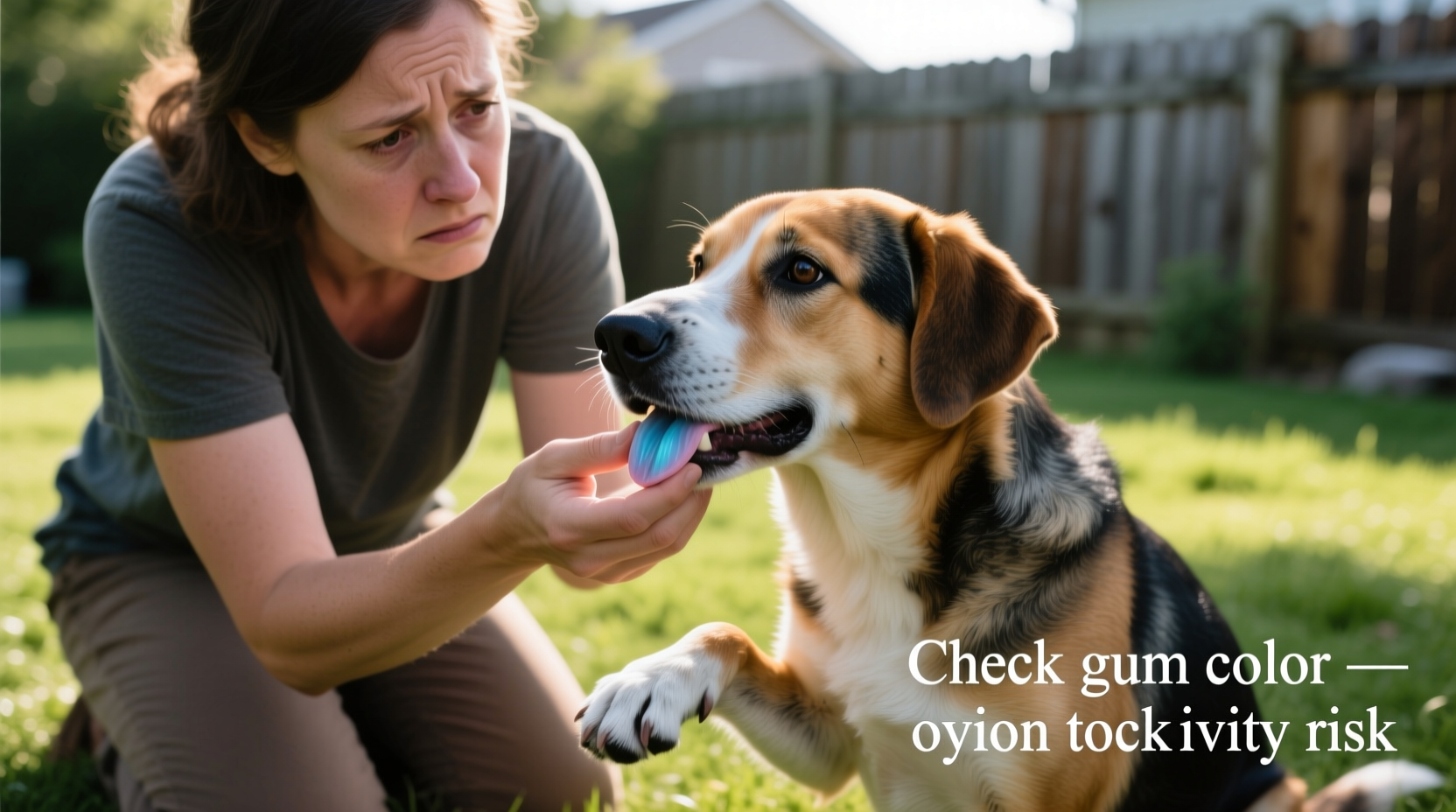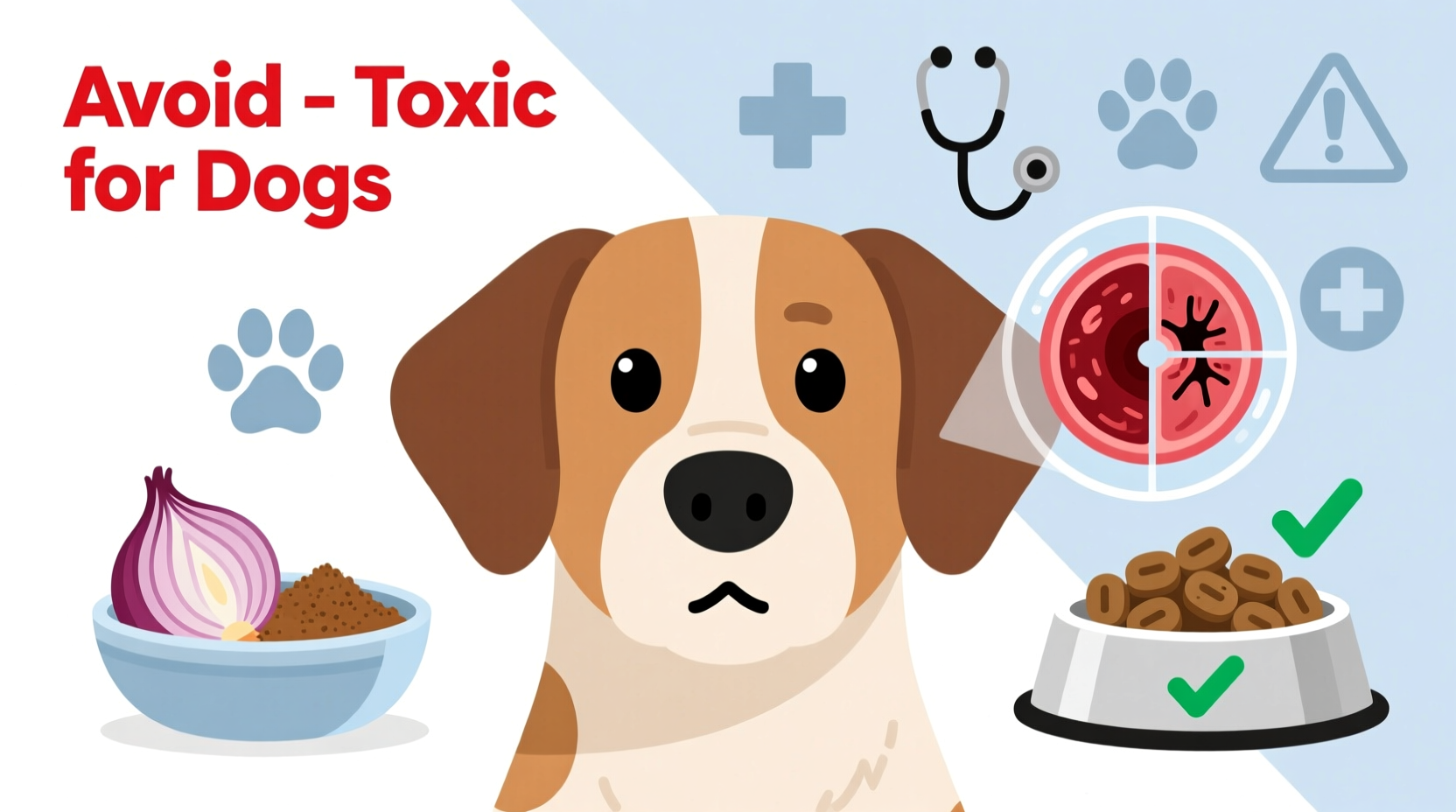Why Onion Powder Poses a Severe Risk to Dogs
Onion powder concentrates the toxic compounds found in fresh onions, making it particularly dangerous for canine companions. The primary toxin, N-propyl disulfide, oxidizes hemoglobin in red blood cells, causing them to rupture. This process leads to hemolytic anemia, which can be fatal without prompt treatment.
Unlike humans, dogs lack the necessary enzymes to safely metabolize these sulfur compounds. The American Veterinary Medical Association confirms that all members of the Allium family (onions, garlic, leeks, chives) are toxic to dogs, with powdered forms being especially hazardous due to their concentrated nature.
| Form of Onion | Toxicity Level | Minimum Dangerous Amount | h
|---|---|---|
| Fresh onions | High | 15-30g per kg of body weight |
| Onion powder | Extreme | As little as 5g per kg of body weight |
| Garlic | Moderate-High | 15-30x more toxic than onions |
This comparison from the American Veterinary Medical Association demonstrates why powdered onion presents such a significant risk - its concentrated form means even small amounts in processed foods can reach toxic levels.
Symptoms of Onion Powder Poisoning in Dogs
Dog owners should watch for these warning signs after potential exposure:
- Weakness and lethargy (most common early symptom)
- Vomiting and diarrhea
- Bright red or brown urine
- Rapid breathing and heart rate
- Pale or yellow-tinged gums
- Decreased appetite
According to the ASPCA Animal Poison Control Center, symptoms may not appear for 24-72 hours after ingestion, making early intervention critical even if your dog seems fine initially.

Immediate Actions if Your Dog Ingests Onion Powder
If you suspect your dog has consumed onion powder, follow these steps:
- Contact your veterinarian immediately - time is critical with onion toxicity
- Have the product packaging available to share ingredient details
- Do not induce vomiting unless specifically instructed by a professional
- Monitor for symptoms while traveling to the clinic
- Bring a sample of the suspected product to the veterinary appointment
The Cornell University College of Veterinary Medicine reports that treatment typically involves intravenous fluids, oxygen therapy, and in severe cases, blood transfusions. Early intervention significantly improves recovery outcomes.
Preventing Onion Powder Exposure in Your Home
Protect your dog with these practical prevention strategies:
- Store all spice containers securely in closed cabinets
- Read labels carefully on processed human foods before sharing with pets
- Avoid feeding table scraps that may contain hidden onion powder
- Be cautious with baby food, which sometimes contains onion powder
- Choose pet-safe alternatives for flavoring dog treats
Many commercial dog foods and treats now prominently advertise "no onion or garlic" on their labels. The Pet Food Institute confirms that reputable pet food manufacturers avoid all Allium family ingredients due to their known toxicity.
Common Misconceptions About Onion Powder and Dogs
Several dangerous myths persist about onion safety for dogs:
- "Small amounts are safe" - There is no established safe threshold for onion powder
- "Cooking destroys the toxin" - N-propyl disulfide remains toxic even when cooked
- "Only fresh onions are dangerous" - Powdered forms are actually more concentrated
- "My dog ate it before with no issues" - Toxicity can accumulate over time
The cumulative effect of repeated small exposures is particularly concerning, as noted in veterinary research published in the Journal of the American Veterinary Medical Association.
Frequently Asked Questions
How much onion powder is toxic to dogs?
As little as 5 grams of onion powder per kilogram of body weight can cause toxicity. For a 20-pound dog, this means just one teaspoon of onion powder could be dangerous. The Merck Veterinary Manual states there is no safe consumption level for dogs.
What should I do if my dog ate food with onion powder?
Contact your veterinarian immediately, even if your dog shows no symptoms. Bring the food packaging to identify the exact amount consumed. Do not wait for symptoms to appear, as onion toxicity can take 24-72 hours to manifest while causing internal damage.
Are some dog breeds more sensitive to onion powder?
Yes, Japanese breeds like Shiba Inus and Akita Inus appear more susceptible to onion toxicity due to genetic factors affecting their red blood cells. However, all dog breeds are at risk, and no breed is considered immune to the effects of onion powder.
Can dogs recover from onion powder poisoning?
With prompt veterinary treatment, most dogs can recover from onion powder poisoning. Recovery depends on the amount consumed and how quickly treatment begins. Severe cases may require blood transfusions, but the prognosis is generally good with early intervention according to the American College of Veterinary Internal Medicine.











 浙公网安备
33010002000092号
浙公网安备
33010002000092号 浙B2-20120091-4
浙B2-20120091-4